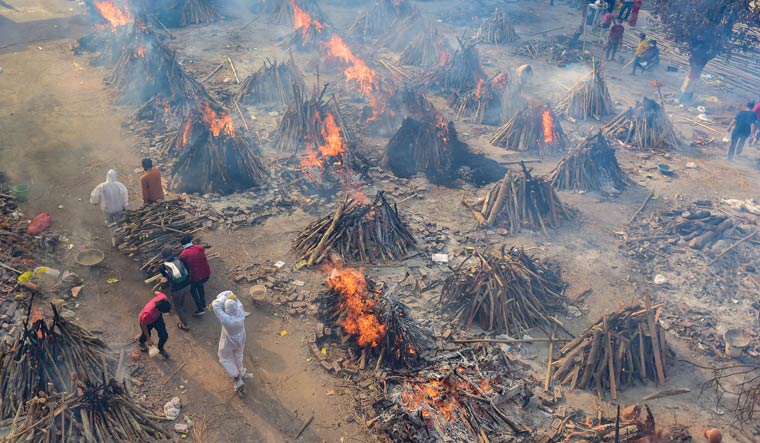Even as the country continues the desperate struggle against the second wave of COVID-19, senior officers at the weekly health ministry briefing pretended that there was nothing to worry about.
AIIMS director general Randeep Guleria continued to talk about when to use Remdesivir or Invermectin, even as it was pointed out that forget these expensive drugs, even regular paracetamol was not easily available at pharmacies any more.
Joint secretary, health ministry, Luv Agarwal, refused to acknowledge the comments from various state governments that they were suspending vaccinations because of shortage. Instead, he spoke about the progress of the vaccination coordinated by the by the Centre for the “scientifically” selected age group of above 45. He said the universal vaccination may start slowly, like in the case for previous groups, but will pick up gradually, giving absolutely no details on how this massive leg of the vaccination will begin.
also read
- 335 fresh Covid cases in India
- From polio to Covid-19: What we can learn from polio eradication for pandemic response
- Sudha Murty praises Vivek Agnihotri's 'The Vaccine War'
- China won't require COVID-19 testing for incoming travellers starting Wednesday
- North Korea to allow its citizens abroad to return home, a sign of further easing of pandemic curbs
Agarwal gave details on the Centre's communication with the most affected states —the number of meetings held and advisories given to them on managing the increasing caseload. Short of openly apportioning the blame for the current situation on the states and absolving the Centre, he said, “States were requested never to lower their guard, they were advised to monitor case trajectory....''
In fact, the officials continued to say there was no cause for panic and that most of the cases—85 per cent—were either asymptomatic or mild attacks. While they displayed elaborate graphs on how the caseload and death rates rose, they did not address the main issue of how the pandemic went out of hand. Instead, they spoke about how they had augmented infrastructure in the past months, and about the recent imports of oxygen and oxygen related equipment.
Most ironic, however, was Agarwal's presentation, in which he said laxity at any level will impact everyone in the society. He stressed on how states were told to identify clusters and focus on local containment. Among the states mentioned, however, Uttarakhand, which hosted the Kumbh, a massive gathering of humanity, finds no mention. Neither were election rallies mentioned, even though several states which went to the polls were identified by the Centre as hotspots and given the talking down to several times, apparently. The states that the Centre was in touch with are: Maharashtra, Punjab, Haryana, Madhya Pradesh, West Bengal, Delhi, Karnataka, Uttar Pradesh and Chhattisgarh.





